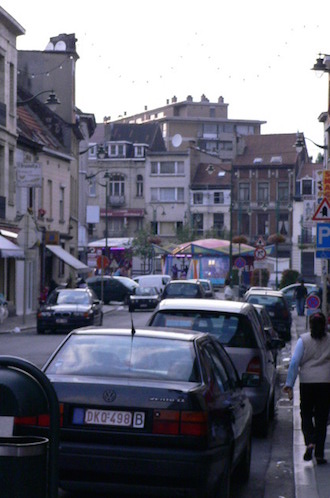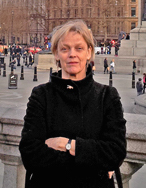How Brussels' Molenbeek district became a jihadist hotbed
Brandeis Prof. Jytte Klausen explains how one district in Belgium has developed a reputation as home to terrorists
 Photo/public domain
Photo/public domainMolenbeek, Belgium
For more than a decade, Jytte Klausen, the Lawrence A. Wien Professor of International Cooperation, has been tracking and documenting Islamic extremists in Europe. In the aftermath of Monday’s terrorist attacks in Brussels that killed dozens and wounded hundreds, she discussed her expertise on jihadism in Belgium and the extremist recruitment process in Europe with BrandeisNOW. The opinions expressed here are her own.
BN: How did the Belgian district of Molenbeek become a jihadist hotbed?
JK: In the ’60s and ’70s Molenbeek was a working class district in Brussels. Today it’s an inner city district of older housing that has transitioned from industrial housing to housing for immigrants and a lot of hipsters. In that sense it’s a lot like Brooklyn; perhaps Brooklyn 20 years ago. There is a high concentration of gangs, and Islamic extremists have recruited predominantly from those gangs, and a network of extremists has formed.
Today, the area has a reputation as a home to extremists. It’s where authorities say the attacks in Paris in November 2015 were plotted, and it’s where they turned their focus in the aftermath of attacks in Brussels Monday.
BN: Where are Belgium’s jihadists coming from?
JK: They are second- or third-generation children of immigrants from Morocco or Algeria. Because of Europe’s open borders and easy transportation, many French extremists moved to Belgium after France cracked down on extremism in the wake of a series of attacks known as the Metro bombings were carried out in the mid-1990s by extremist Algerians. Over the years, a concentration of extremists emerged in the area of Molenbeek.
BN: How are prospective extremists recruited and radicalized?
 |
| Jytte Klausen |
JK: You have a neighborhood effect, a convergence between gangs and underground jihadists. They network online, creating analog peer groups on social media linking extremists in Molenbeek with those in Raqqa and beyond. They travel openly to the Islamic State in Syria and Iraq, so someone says ‘Hey lets go,’ and they go, and that process happens many times over.
As a result of those trips to the Islamic State, we get people who are already acclimatized to violence from their experience in gangs furthering that experience in a war zone. They also meet like-minded people from other countries and they expand their contacts. We have seen a merger of Belgian and French networks, for example. It’s still a relatively small group but they are well connected and that gives them extreme mobility, which allows them both to hide and to deploy.
BN: How does this differ from the recruitment process in the United States?
JK: Here in the U.S. we just don’t have these elements of contagion points. We don’t have these extremist neighborhoods, and we don’t have unfettered travel to Syria and Iraq. The U.S. government has been very successful in restricting travel to Islamic states in recent years, compared to Europe, where thousands left for the Islamic State between 2012 and 2014. Now they are coming back.
For more from Klausen, read this profile in Brandeis Magazine.
Categories: International Affairs, Research





